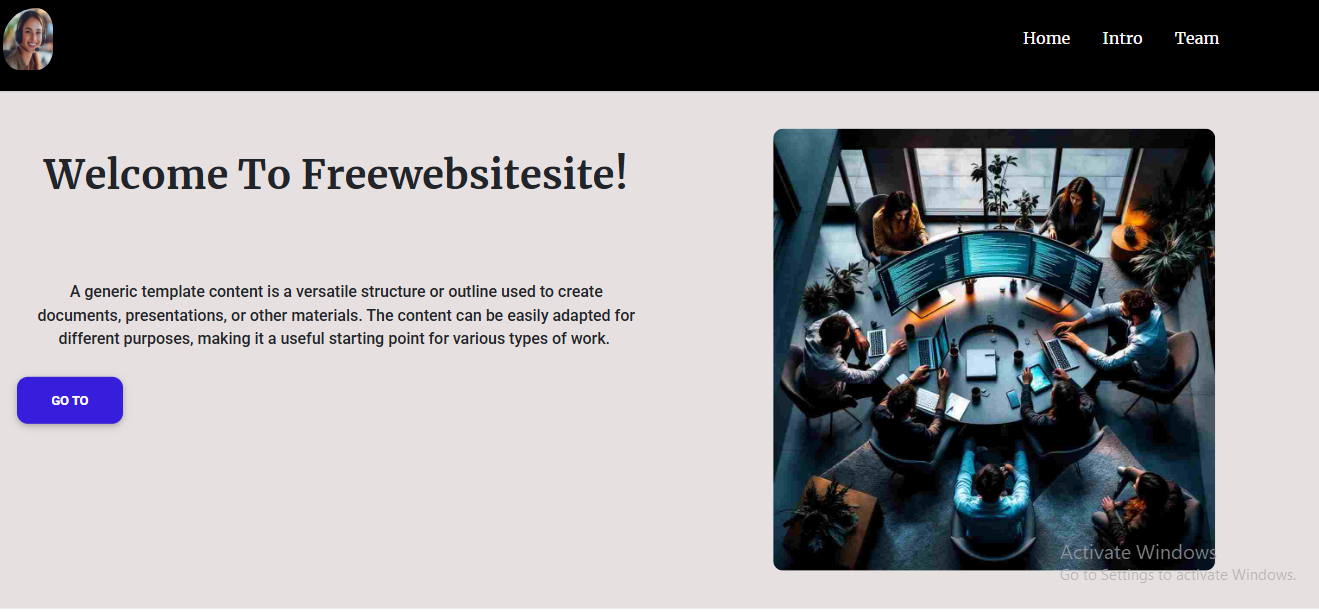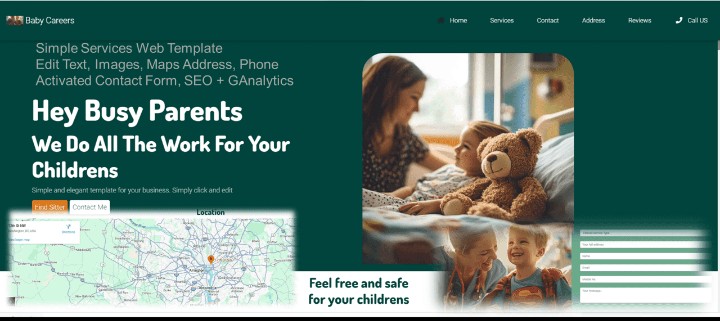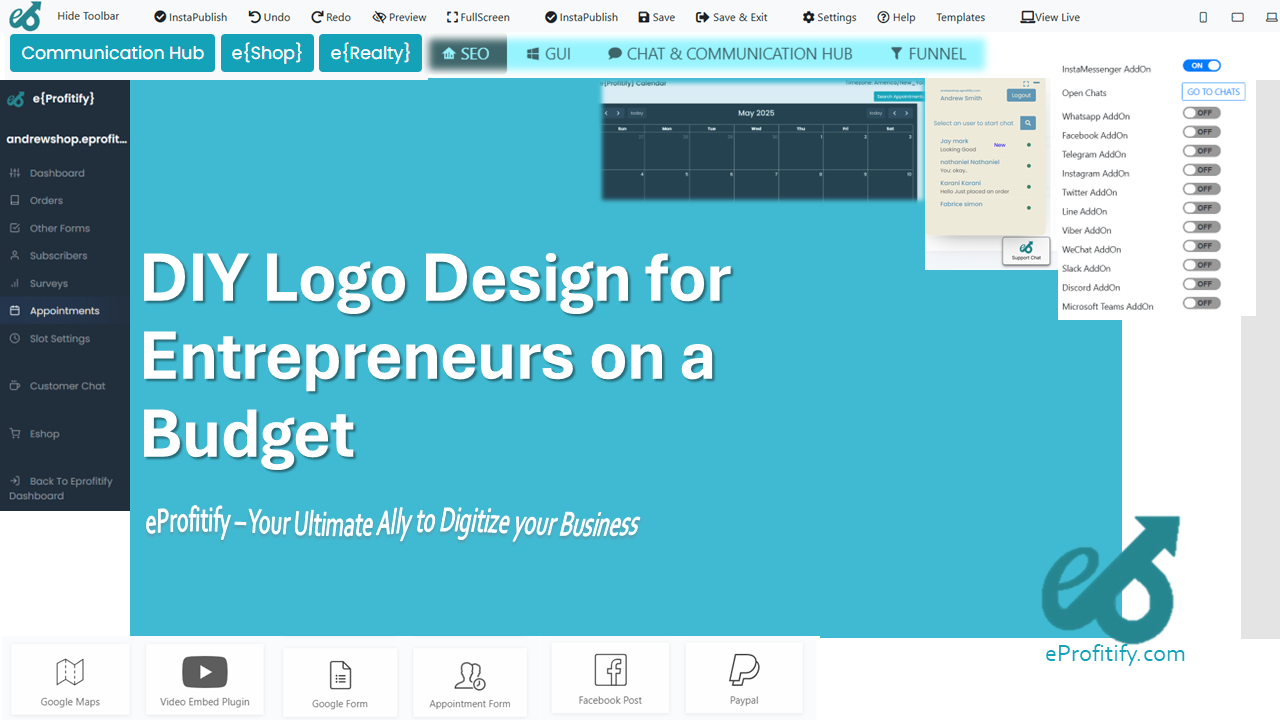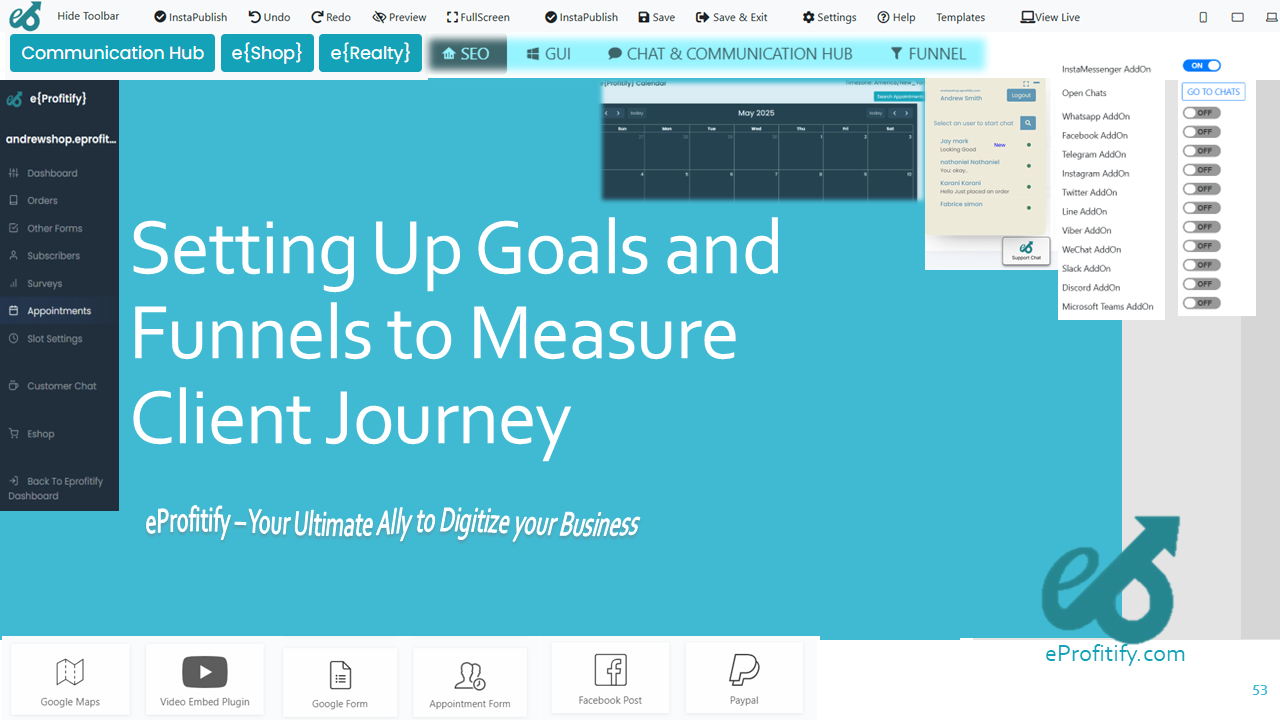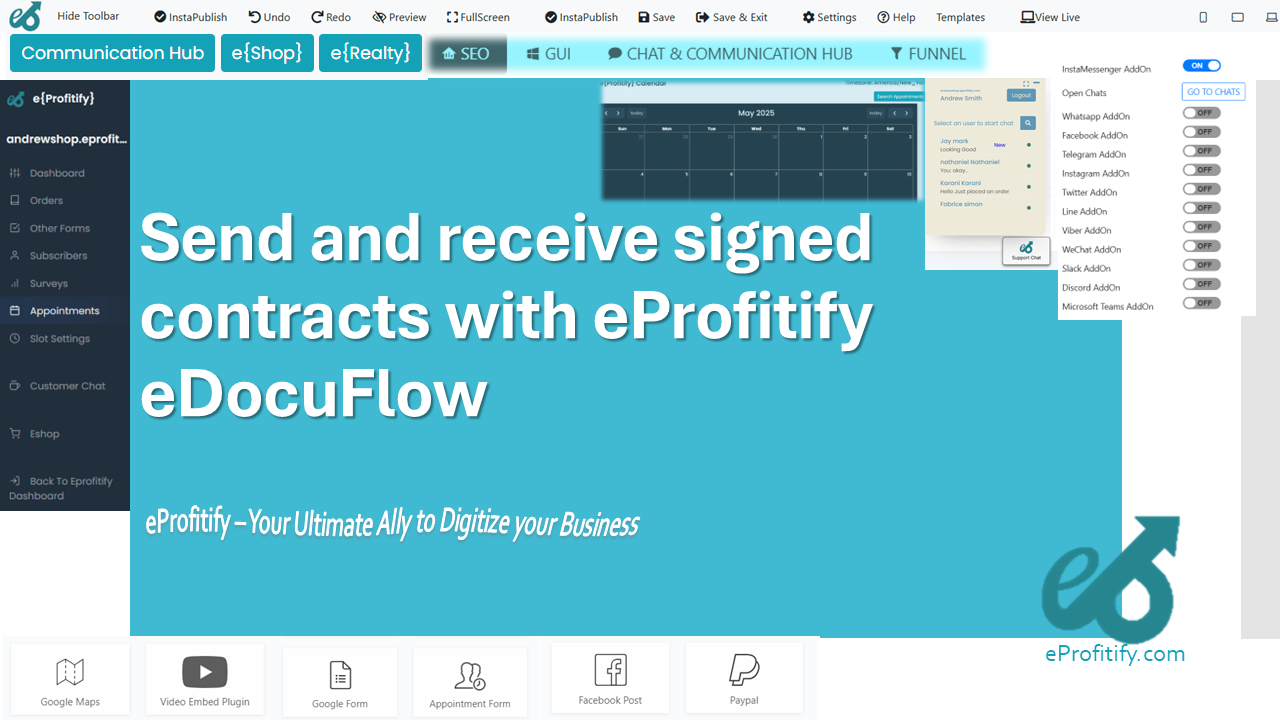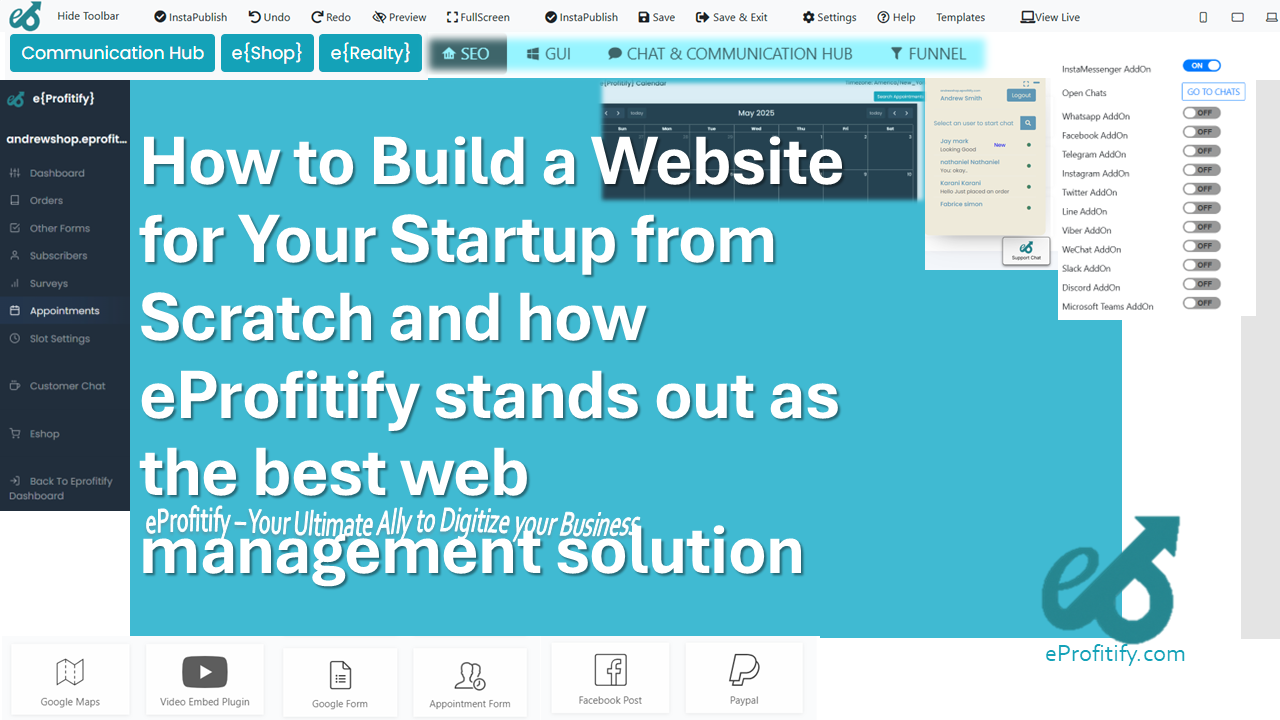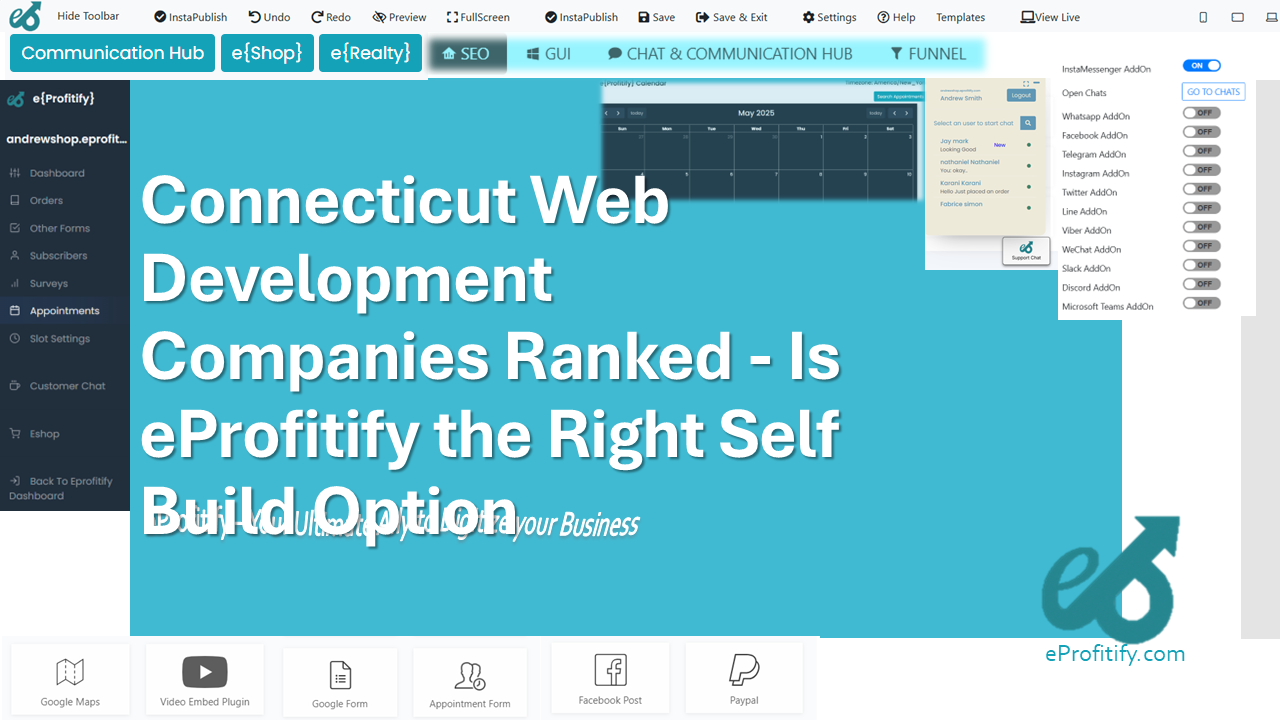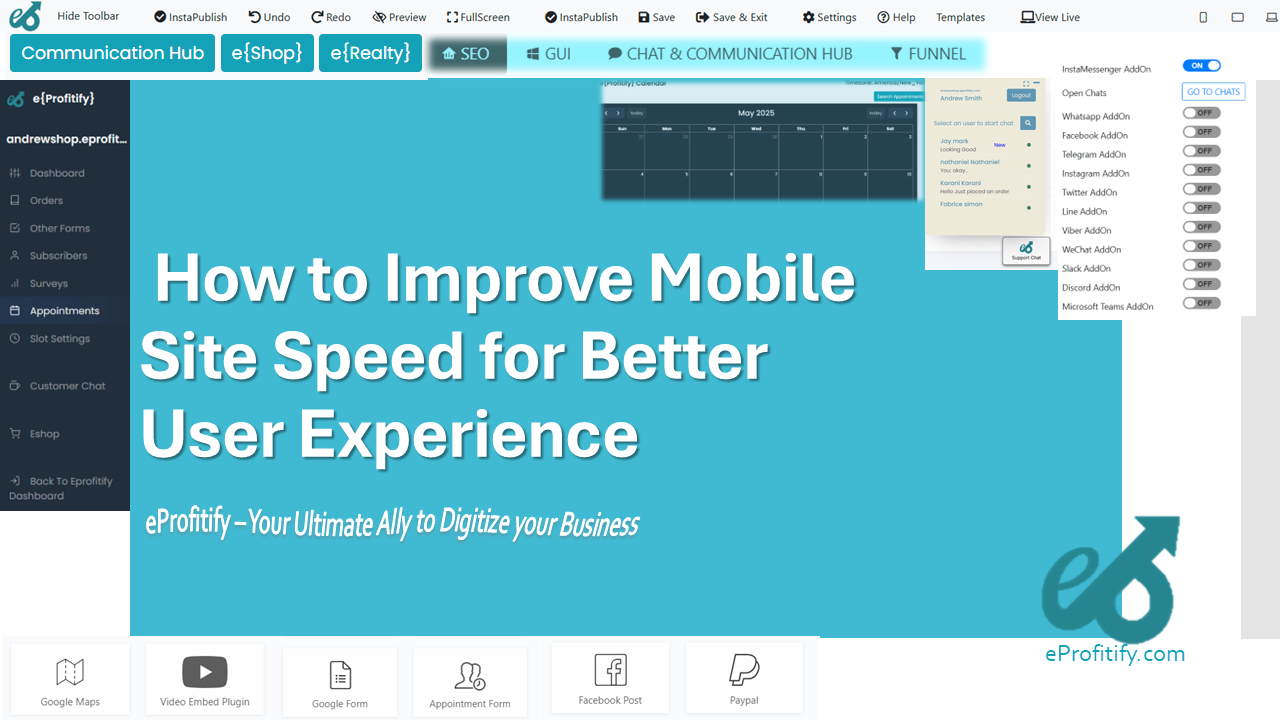Manage staff permissions using eProfitify user roles
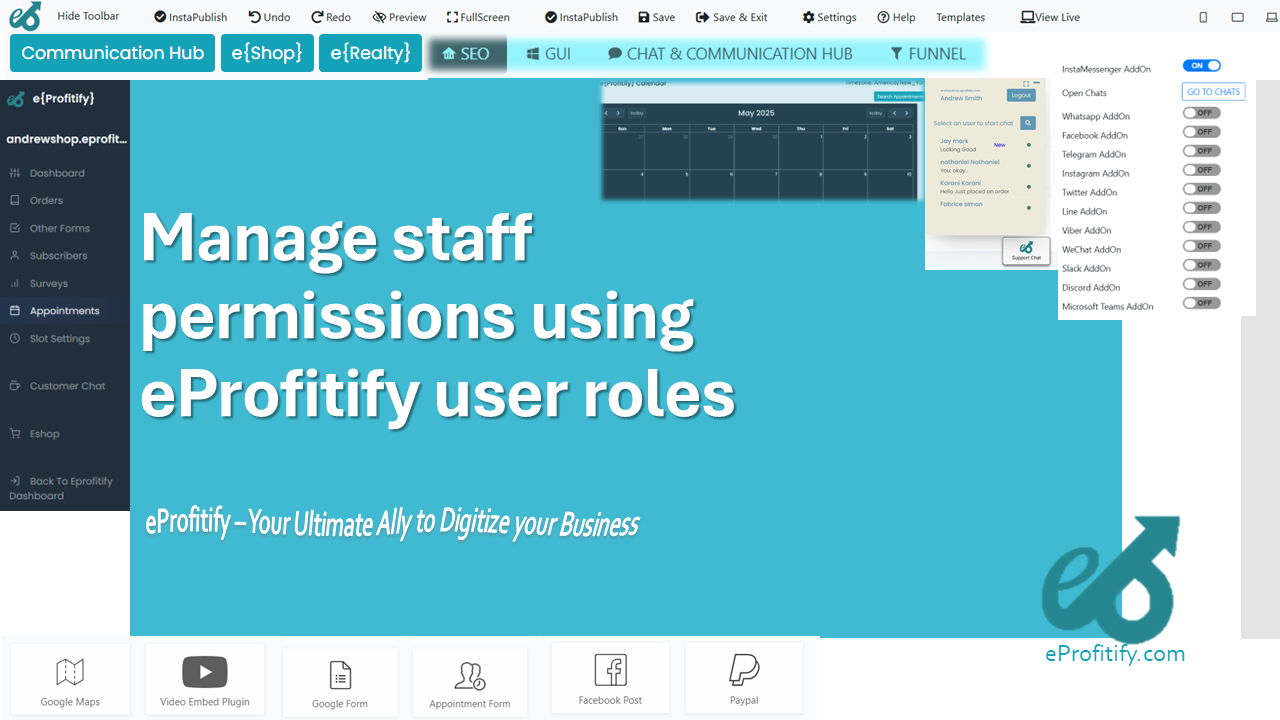
Schedule a LIVE Zoom call with an eProfitify Expert.
Managing Staff Permissions with eProfitify User Roles: Enhancing Security and Efficiency
In today’s fast-paced digital landscape, businesses require robust tools to streamline operations while safeguarding sensitive data. Managing staff permissions is a cornerstone of organizational security and efficiency, ensuring employees access only the resources necessary for their roles. eProfitify, a leading website publishing and management platform, addresses these needs with its advanced user role system, integrated alongside powerful tools like instant messaging, appointment management, ecommerce, and CRM. This article explores how eProfitify’s user roles empower businesses to optimize workflows, reduce risks, and scale effectively, backed by compelling statistics and real-world insights.
The Critical Role of User Permissions
User roles define what employees can see, edit, or manage within a platform. Without proper permissions, businesses risk data breaches, operational chaos, and compliance violations. Consider these statistics:
- According to Verizon’s 2023 Data Breach Investigations Report, 58% of breaches involved insider threats, including accidental misuse or malicious actions by employees.
- A Gartner study found that 80% of access management issues arise from overly broad user permissions, emphasizing the need for granular control.
- Businesses with structured permission systems report 30% faster onboarding and 20% fewer IT incidents, as noted by Forrester Research.
eProfitify’s user role management mitigates these risks by enabling precise control over access, tailored to organizational hierarchies and workflows.
eProfitify’s User Role Framework: Customization Meets Simplicity
eProfitify offers a flexible system to create, modify, and assign user roles across its suite of tools. Administrators can define roles such as Admin, Editor, Sales Agent, Support Staff, or Ecommerce Manager, each with specific permissions. Key features include:
- Granular Access Control: Restrict or grant access to CMS pages, CRM data, ecommerce settings, or appointment calendars.
- Pre-Built Templates: Start with default roles or customize them for unique team structures.
- Cross-Functional Integration: Permissions sync seamlessly with eProfitify’s CRM, appointment scheduler, and other modules.
For example, a Sales Agent might access CRM leads but not financial reports, while an Editor can publish blog posts without altering payment gateways. This specificity minimizes errors and enhances accountability.
eProfitify’s Feature-Rich Ecosystem and Permission Management
As a holistic platform, eProfitify combines publishing, communication, and management tools, all governed by its user role system:
-
Instant Messaging:
- Staff can collaborate in real-time, but permissions ensure sensitive discussions (e.g., HR matters) are restricted to authorized roles.
-
Appointment Management:
- Front-desk staff can schedule appointments but cannot modify billing rules, which are reserved for Admins or Finance roles.
-
Ecommerce Integration:
- Restrict product catalog edits to managers while allowing sales teams to process orders. PCI compliance is streamlined through limited access to payment data.
-
CRM System:
- Sales teams view customer histories, while marketing teams analyze trends without accessing personal contact details.
-
Website Publishing:
- Editors draft content, but only Admins or approved roles publish live changes, preventing unauthorized site modifications.
The Business Benefits of eProfitify’s Approach
- Enhanced Security:
- Reduce breach risks by 40% (McAfee) through least-privilege access.
- Operational Efficiency:
- Role-specific dashboards cut task completion time by 25% (Accenture).
- Scalability:
- Quickly onboard new teams or departments with predefined roles.
- Compliance:
- Meet GDPR, HIPAA, or CCPA standards by auditing access logs and permissions.
Case Study: Retail Success with eProfitify
A mid-sized ecommerce retailer reduced support tickets by 35% after implementing eProfitify’s roles. By restricting inventory edits to managers and granting order access to customer service teams, errors dropped by 50%. The integrated CRM also improved upsell rates by 18% through targeted permissions for sales analytics.
Conclusion: eProfitify – A Leader in Secure Business Management
With cybersecurity incidents costing businesses $4.45 million on average (IBM, 2023), adopting a platform like eProfitify is no longer optional—it’s strategic. By unifying user roles with a robust suite of tools, eProfitify empowers businesses to protect data, streamline collaboration, and drive growth. Whether managing an online store, booking appointments, or analyzing CRM insights, eProfitify’s permission system ensures teams work smarter, safer, and faster.
Elevate your operations today with eProfitify, where innovation meets security.
